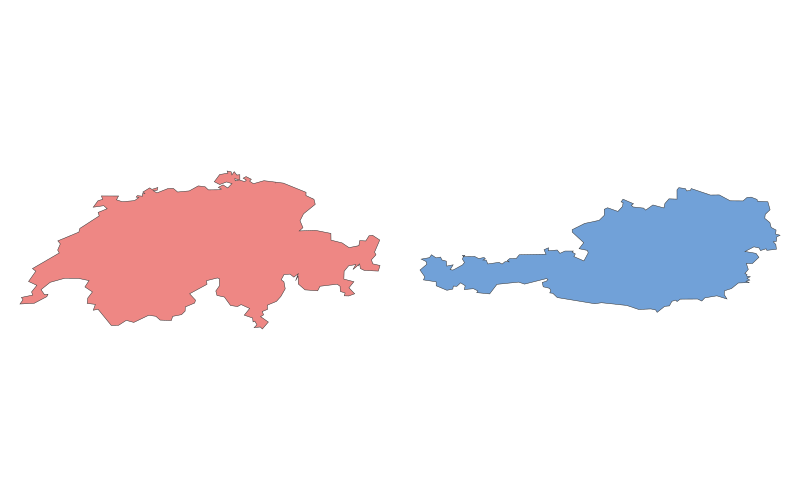スイス vs. オーストリア

地理比較表
| 項目 | スイス | オーストリア |
|---|---|---|
| 位置 | 中央ヨーロッパ、アルプス山脈に位置 | 中央ヨーロッパ、アルプス東部に位置 |
| 面積 | 41,290 km² | 83,879 km² |
| 気候 | 温帯、アルプス地域は高山気候 | 温帯、東部は大陸性気候 |
| 自然資源 | 水力発電、森林 | 森林、鉄鉱石、天然ガス |
| 都市開発 | チューリッヒ、ジュネーヴが主要都市 | ウィーン、グラーツが主要都市 |
| 交通 | 鉄道網が発達、スイスアルプス縦断道路 | ウィーンを中心に鉄道・道路網が整備 |
詳細説明
スイス
スイスは永世中立国として知られ、多言語国家(ドイツ語、フランス語、イタリア語、ロマンシュ語)である。金融・時計産業が世界的に有名で、GDPの大半をサービス業が占める。アルプス山脈が国土の大部分を覆い、観光業も主要産業の一つ。直接民主制が特徴的な政治体制を持つ。
オーストリア
オーストリアはハプスブルク帝国の歴史を持ち、音楽(モーツァルト、シューベルト)や美術で文化的な影響力が大きい。ウィーンはかつての帝国首都としてヨーロッパの文化・政治の中心地だった。現在は機械工業・観光業が経済の中心。アルプス地方のスキーリゾートが世界的に人気。
両国とも自然美と高い生活水準で知られるが、スイスは国際的な金融センターとして、オーストリアは文化的な遺産でそれぞれ特徴を発揮している。